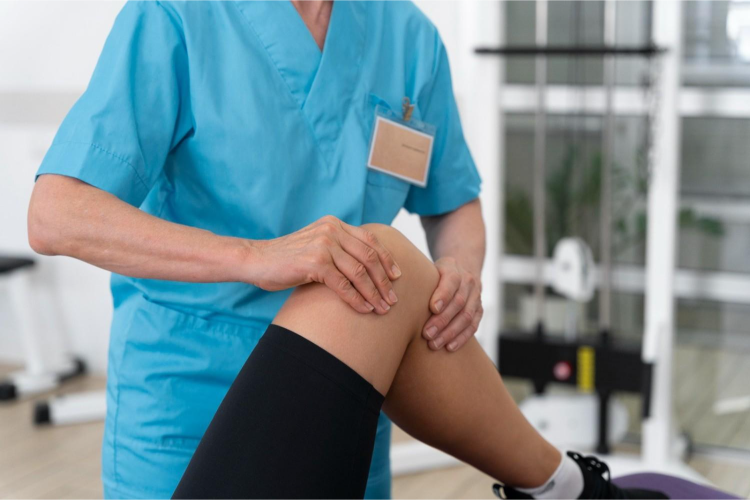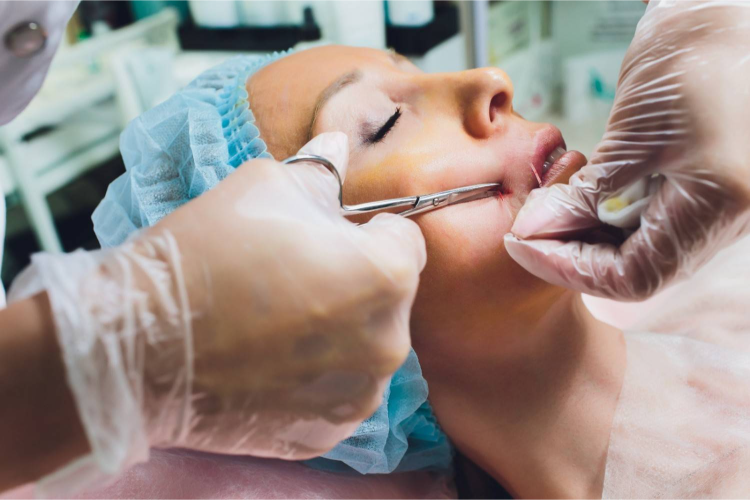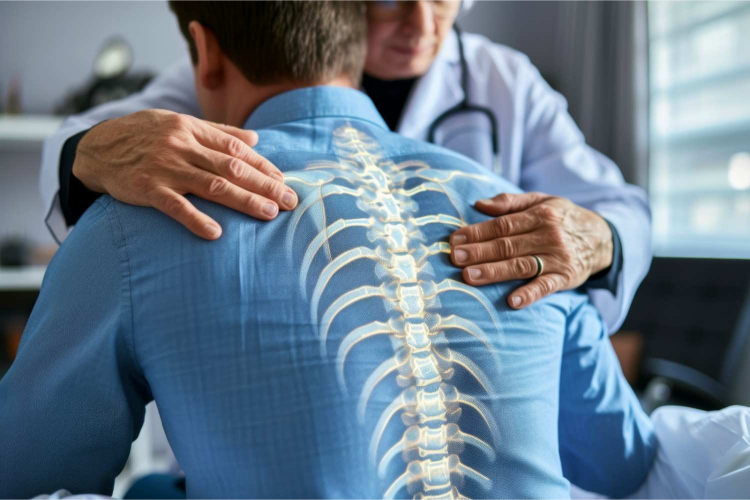TKR REHABILITATION: Key to enjoy a pain free life
Total Knee Replacement has become a routine procedure to tackle age related osteoarthritis knee pain and deformities. But unfortunately less emphasis is given on the importance of the rehabilitation protocol. Even the best of surgeries will lead to unsatisfactory outcomes if post operative rehabilitation exercises are neglected.
We are here to discuss and guide TKR patients through various post operative exercises so that they can achieve a full recovery and a pain free post operative life.
Unlike other types of surgeries, after TKR, rest is seldom advised. Exercise protocol should be followed strictly. In case of increased swelling with or without pain, patient can take rest and cold compression for 24 hours and is advised to get back to the exercise regimen as soon as tolerable.
Day 1:
Post operative exercises start from the very next day after surgery. After post operative dressing, the patient is asked to stand and bear weight on the operated knee with the help of a walker.
Week 1:
Stand with the help of a walker and bear weight on the affected knee as long as tolerable. This should be repeated every few hours.
Extend and straighten the operated knee actively with a pillow on the foot end. Keep it extended as long as tolerable.
Flex the affected knee with support as much as tolerated. In absence of any assistance, it can be done on bed where the bed acts as support.
Ankle Pump Exercise: Move your foot up and down rhythmically by contracting your calf and shin muscles. Do this for 10-15 mins every 2 hours
- Quadriceps Exercise: Tighten your thigh muscles, straighten your knee and dorsiflex your foot. Hold for 30 seconds or as much as tolerated. Repeat the same after 30 seconds of rest. This exercise should be done for 5-10 minutes every few hours or as much as tolerated
Week 1-2:
Ankle Pump Exercise
Quadriceps Exercise
- Assisted Knee Bending Exercise: Place a folded towel over your operated knee and drop the towel to your foot. With the help of the towel bend your knee as much as tolerated and hold it for 30 second. Extend your knee, rest for 30 seconds and repeat the same.
Knee Range of Motion Exercises (ROM) with legs hanging from chair-
Straight Leg Raise Exercise: Raise your operated leg several inches off the floor, hold it in that position for 30 seconds and then lower it slowly. Repeat this exercise for 10-15 minutes every few hours or as tolerable.
Walking with support for as long as tolerable. Start with walker after the surgery. Later, you can shift to walking stick if needed.
Week 2-4:
Add weight cuff (1 kg) to your exercise regimen where applicable and if tolerable.
Ankle Pump Exercise
Quadriceps Exercise
Assisted Knee Bending Exercise
Walking with support
Straight Leg Raise Exercise
- Knee ROM Exercise with leg hanging+/- wt. cuff
- Knee ROM exercise in prone position+/- wt. cuff
- Ball squeeze between knees Squeeze a ball between both knees, hold it for 30 secs and then relax. Repeat this for 10-15 mins at least twice a day.
Hamstring curls: Standing erect with the aid of a walker or a chair, lift your thigh and bend your knee as much as you can. Hold for 30 seconds. Repeat this for for 10-15 minutes at least twice a day.
Heel Raise Exercises- Keep your knees straight, raise your heel up off the floor as far as you can go, hold for 15 seconds and then slowly return. Repeat this for 10-15 minutes at least twice a day.
Abduction of hip against gravity While lying on your side raise the operated leg sidewise and hold it for 30 seconds. Repeat this for 10-15 minutes at least twice a day. A weight cuff can be added to further increase muscle strength.
Week 4-6:
All above exercises to be done along with the following
Bridge Exercise: Lie on your back with your knees bent. Tighten your abdominal muscles. Raise your hips off the floor until your hips are aligned with your knees and shoulders. Hold for 5-10 seconds. Repeat this for 10 to 15 minutes at least twice a day.
Mini Squats with support: With a support for balance, bend your hips and knees as if you are going to sit down in a chair. For the mini squat, you only need to bend your knees 45 to 60 degrees. Return back up to the starting position.
Step up exercise: Lead with the operated leg. Place your foot on the step and bring your other foot up as you are standing on the step. Repeat this for 10-15 minutes at least twice a day.
Step up lateral: Lead with the operated leg. Stand with a step on your operated side. Side step on it and lift your other leg to stand on the same. Repeat this for 10-15 minutes at least twice a day.
Balance on one leg with support- Hold on to a chair back or a table with both hands. Lift one leg off the ground, slowly. Maintain your balance while standing on one leg for 10-15 seconds. Return to the starting position and repeat for 5-10 minutes at least twice a day.
Resisted knee flexion and quadriceps exercises: Sit on a chair and use a resistance band in such a way that it resists active knee extension. Extend the knee against resistance slowly, hold it for 5 seconds then slowly return. Repeat for 10-15 minutes at least twice a day.
After 6 weeks:
Balance on one leg without support: Stand with both feet on the ground. Slowly lift one leg and hold the position for 30 seconds. Repeat the same for 10-15 minutes at least twice a day.
Cycling (Gym): Adjust your seat height. Start peddling backwards. Ride forward only after comfortable cycling motion is possible backwards. May add resistance gradually later on.
Climbing stairs with or without support: Start slowly, with one step at a time and always with the support of the handrail. Gradually you should be able to climb stairs foot over foot.
- Take Home Message: The importance of post operative exercises after Total Knee Replacement cannot be stressed more. All and every patient should follow these exercise protocol as much as possible. Though professional physiotherapy is often advised, it is not essential for a complete recovery after a Total Knee Replacement surgery. A patient himself with some help from his family members is more than capable to follow this Exercise Regimen. But if at any time the patient feels that he or his family members are not being able to motivate him to stick to the exercise protocol, then he must consult his doctor and/or a physiotherapist immediately.
Post-operative strength of the operated limb is directly proportional to the pre-operative muscle strength. Sometimes patients come after extensive damage to the knee joint due to osteoarthritic changes. This occurs due to delay in seeking treatment or reluctance towards surgery. In such cases, there will be decreased strength of muscles on the affected limb. Such patients may not be able tofollow the strict timeline of the post-operative exercise protocol. For them we need to tailor our exercise regimen according to the ability and tolerance of the patient.
Pain and swelling after exercise is normal. If it happens, he is advised to take a day off from his exercises. He should take medications for pain as advised and apply cold compression to the operated knee. He should try to get back to his exercise protocol as soon as possible.
In addition, we need to remember that no two patients are similar. Each patient is unique in his or her strength, stamina and endurance. Each patient has a different expectation and life style need. So instead of a uniform one size fits all approach, a personalised approach should be advocated.
At Techno India Dama Hospital, we offer personalized rehabilitation plans and expert guidance to ensure every TKR patient achieves the best possible outcome. If you or your loved ones need support during recovery, our team is always here to help you regain your mobility and live pain-free.



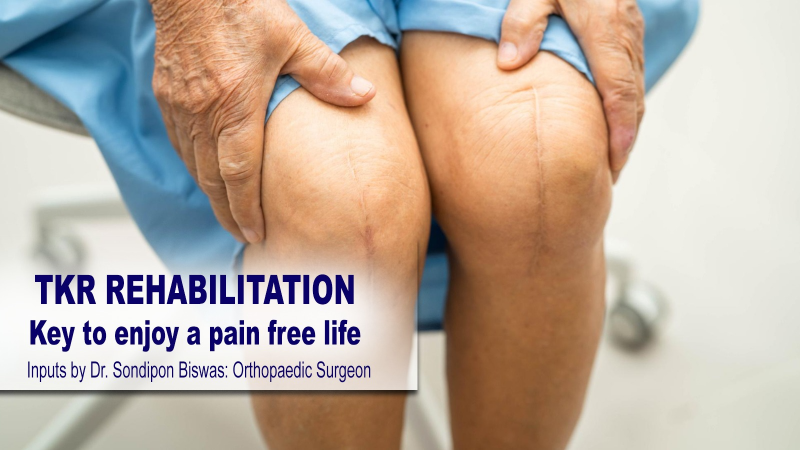

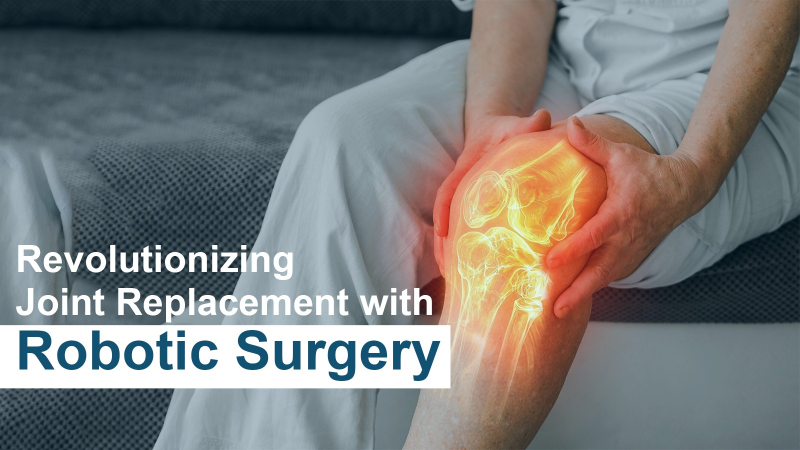




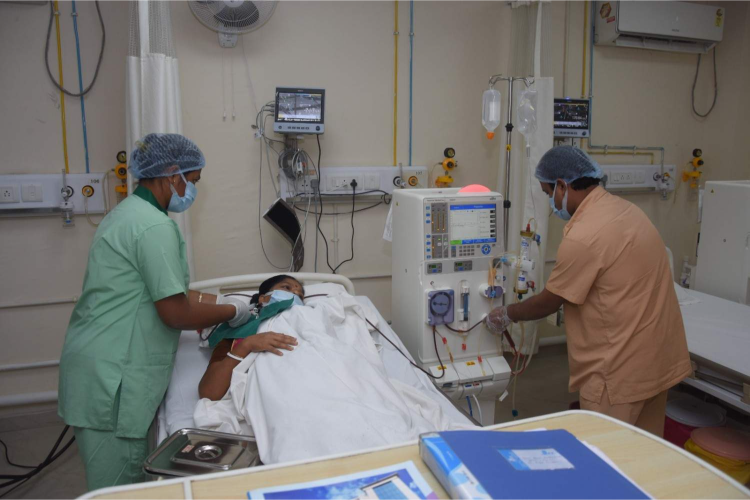
.webp)
.webp)
